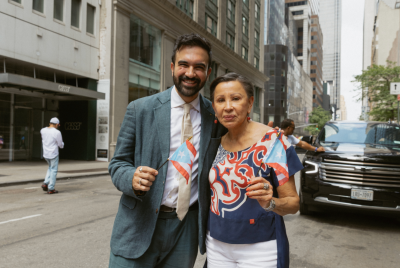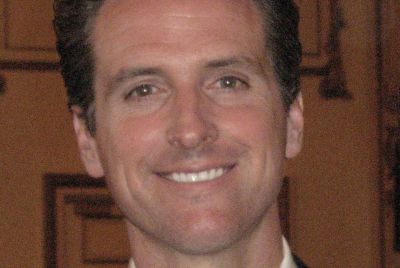Dominique Strauss-Khan: Ex-IMF chief trial begins, case opens up sexual misconduct in French politics
The former head of the International Monetary Fund, Dominique Strauss-Kahn, has appeared in a New York court where he faces charges of sexual assault, unlawful imprisonment and attempting to rape a hotel maid last month. He was arrested by the New York police while boarding an Air France plane that was about to take off for Paris.
He arrived today at the courthouse with his wife, the French television journalist Anne Sinclair, while a group of hotel workers that had staged a protest shouted, "Shame on you!" .
The arrest sent shockwaves through the French political landscape as Strauss-Kahn was tipped as the favourite to run against Nicholas Sarkozy in the 2012 French presidential elections.
It is his first appearance in court since he was released on bail, set at $6m (£3.65m).
The affair started when a 32-year-old maid accused Mr Strauss-Kahn of assaulting her in the Sofitel hotel in New York on 14 May.
Following the claims, the police charged him on 15 May on seven counts, including attempted rape, criminal sexual assault, sex abuse, unlawful imprisonment and forcible touching.
Mr Strauss-Kahn was put behind bars at the famous Rikers Island prison, where he stayed for over a week before being freed on bail. He has since been under house arrest and required to have an armed security guard. He first went to a Manhattan apartment before moving in a deluxe townhouse. He also resigned his post at the IMF after his arrest, leaving John Lipsky to replace him while the organisation looks for his successor.
While Mr Strauss-Kahn has maintained his innocence throughout, and his lawyers insisted throughout that he would plead not guilty to all charges, the prosecution says it is confident it has DNA samples which prove the woman's allegations against Mr Strauss-Kahn.
"The proof against him is substantial. It is continuing to grow every day," Manhattan assistant district attorney, John McConnell, said in court on 19 May.
On the other hand, Mr Benjamin Brafman, Strauss-Kahn's lawyer insisted on 16 May, that any forensic evidence "will not be consistent with a forcible encounter", indicating the defence will admit a sexual encounter took place, but argue that it was consensual.
Another member of the defence team, William W. Taylor, has written that there is evidence to "gravely undermine the credibility of the complainant in this case".
Mr Strauss-Kahn has entered a formal plea before Judge Michael Obus, setting the stage for a lengthy trial process as the full trial is unlikely to start before September..
If convicted of the most serious charge, Mr Strauss-Kahn could face up to 25 years in prison.
However as public opinion in France is still divided over whether or not the Socialist party figure was the object of a conspiracy to try and stop him running as a presidential candidate, the affair has also re-launched a debate on sexual harassment.
"The Strauss-Kahn affair is going to change a lot of things," said Chantal Brunel, a member of the ruling UMP party and spokeswoman for France's observatory on sexual equality.
Following the Strauss-Kahn affair, Sunday's Journal du Dimanche published an outpouring of allegations by female members of parliament about crude remarks by male legislators to their women colleagues and staff under the headline: "Routine sexism in parliament."
Moreover, two weeks after the arrest of the ex IMF chief, a junior minister was forced to fight allegations of sexual harassment of two female staff members, one of whom said the case encouraged her to come forward and prosecutors were also forced to open an inquiry last week following accusations aired on a TV talk show in which former education Minister Luc Ferry accused another ex-minister, without naming him, of being engaged in acts of paedophilia in Morocco.
Brunel added that the scandal was ending a law of silence surrounding sexism in French politics and society. "The Strauss-Kahn affair has awakened fear in men who try to sexually dominate women."
© Copyright IBTimes 2025. All rights reserved.




















